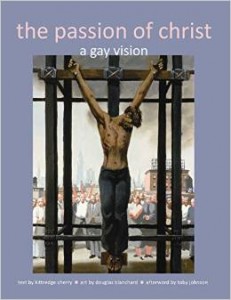Pamela Uschuk is a shamanic poet, invoking the spirits of animals, mountains, and forests, to heal a world that humans have spoiled with war and greed. Her latest collection, Blood Flower (Wings Press, 2014), also gives a voice to her family’s ghosts, starting with her Russian immigrant ancestors, and moving on to her late brother and first husband, who were permanently scarred by their service in Vietnam.
I love the specificity of the nature images in Uschuk’s writing. These are not stylized, sentimental birds and flowers. They are “cliff swallows taking needles of twilight/into their open beaks, stitching/sky’s ripped hem.” They are the “red velvet vulva of roses” and “yellow ginkgo leaves/waxy as embalmed fans warm[ing] grave stones”. I can believe that they are just as real as the scenes of atrocities that surround us in the news media. Their beauty pulls a bright thread through the darkest stories she tells.
Among her many accomplishments, Pam is the editor of Cutthroat, A Journal of the Arts. Three of the poems in this collection won our 2011 War Poetry Contest at Winning Writers. She has kindly allowed me to reprint two more poems from Blood Flower below.
BLACK SWAN
Inside the photo’s tapestry, your silk sleeves
don’t reveal the slit wrists of madness
or the raw cortex of gang legends I loved—
police bullets slugging your car’s backseat
over my father’s young head as you ran
whiskey from Canada for the Purple Gang.
No one talks about your stints
in Joliet and Jackson Prison after you roped
concrete to a corpse you sank in the Grand River.
Who was he, Grandfather?
I feel cheated. Kto vui?
Who are you? I cannot find
your pauper’s grave.
Like Bogart’s in a film noir
your mouth is a tightset scar.
Did it elide vowels
fluid as trout in a cold stream
tearful over the Firebird’s Tale, or sneer
remembering your father’s ultimatum—
leave Russia or join the Tsar’s army—
after your tantrum murdered his valet?
Charming pariah pitched across the Atlantic’s green remorse,
you vowed to send back your first son. But,
what promise did you ever keep?
Ellis Island misspelled your name,
deloused you like everyone else.
Russian was the official language
in your American house built with secret
hideaways beneath hollow attic steps, false
bedroom walls, as you tithed
gang money to Orthodox priests.
Grandfather, what purpose can you discern
now your entitled eyes are soil,
your heart going to anthracite?
Through the ghosts of your manicured hands
that never picked up a hammer or saw
pierce my curious roots.
Even in this distant pose, you glide,
the gorgeous black swan that rules
with fierce stiff wings
curled above a charred back, terrorizing
mallards with his hiss—
irresistable bully of the pond.
Cursed by indelible longing
for birch groves, balalaikas, whirling
Mazurkas, despite a day like today when the earth sinks
to its hips in the rare currency of peace, when
chickadees and finches bask
in the season’s final leaf-lit fling,
when squirrels nap after cannonballing
walnuts to the yard, when
nothing,
nothing in particular
disturbs one molecule of the afternoon,
you smothered your future in Grandma’s yellow kitchen.
What is it in this decaying loam
that makes me cry? What impossible longing,
deformed as swallows reflected in a gazing globe,
when sun seems to illuminate the most stubborn shade?
The same chink in the genes?
Ya Ruskaya, Grandfather; look at the icons I keep—
an inlaid jewelry box from Siberia,
Minsk enameled knives,
the Orthodox cross or your portrait
arranged before the samovar
I carry from house to house.
Thirty-three, you died at thirty-three, syllables
shrill as ax blades sunk into a maple tree,
the same age as your savior
when he was crucified. Horosho.
Grandfather, tell me what fist beat
blue as lacy veins
trapped in our temples,
when you reached for the oven door,
blew out the pilot
to suffocate our lives?
********
REMEMBERING THE TET OFFENSIVE AS TROOPS SHIP OUT FOR A U.S. ATTACK ON IRAQ
for Roger C. Frank
A fighter jet etches ink white as sperm
on the stark sky while January troops deploy
from Camp LeJeune, just like my first husband
did in 1968 on his way to Viet Nam
to wipe the Commie Gooks off the map.
Before he could spell Khe Sahn, think
massacre, he was machine-gunned
then bayoneted, left to die two days
in a jungle valley of shimmering green bamboo
near the clear stream he couldn’t reach
before the chop chop of the Medevac arrived.
One of three survivors of a whole company
of young marines slaughtered, he wanted to toss
the Purple Heart in the trash.
I remember during the long Michigan winter
his night sweats, the way
he’d shout the apartment walls awake, shake
to the screams of his buddies as they choked
on their own blood, clotted by indifferent flies,
some disemboweled, legs,
arms, faces blasted as frosted poppies.
He’d point to the mean hieroglyphs of red scars,
a pinched cummerbund of bullet
and stab wounds cinching his waist,
then ask me, new bride, too young
to be a Sphinx, the riddle I couldn’t reason out.
What was this for? What for?
as he headed to the kitchen for anesthetic beer,
the amber mattress of whiskey straight.
In three years he joined his company underground.
He was handsome, gung-ho like these teen soldiers
interviewed on CNN, cocky
as oiled M16s, proclaiming
their belief as each generation before them
that they will fight the war to end all wars.
Behind them, wives and girlfriends wave
small American flags that break
in the brittle wind.

